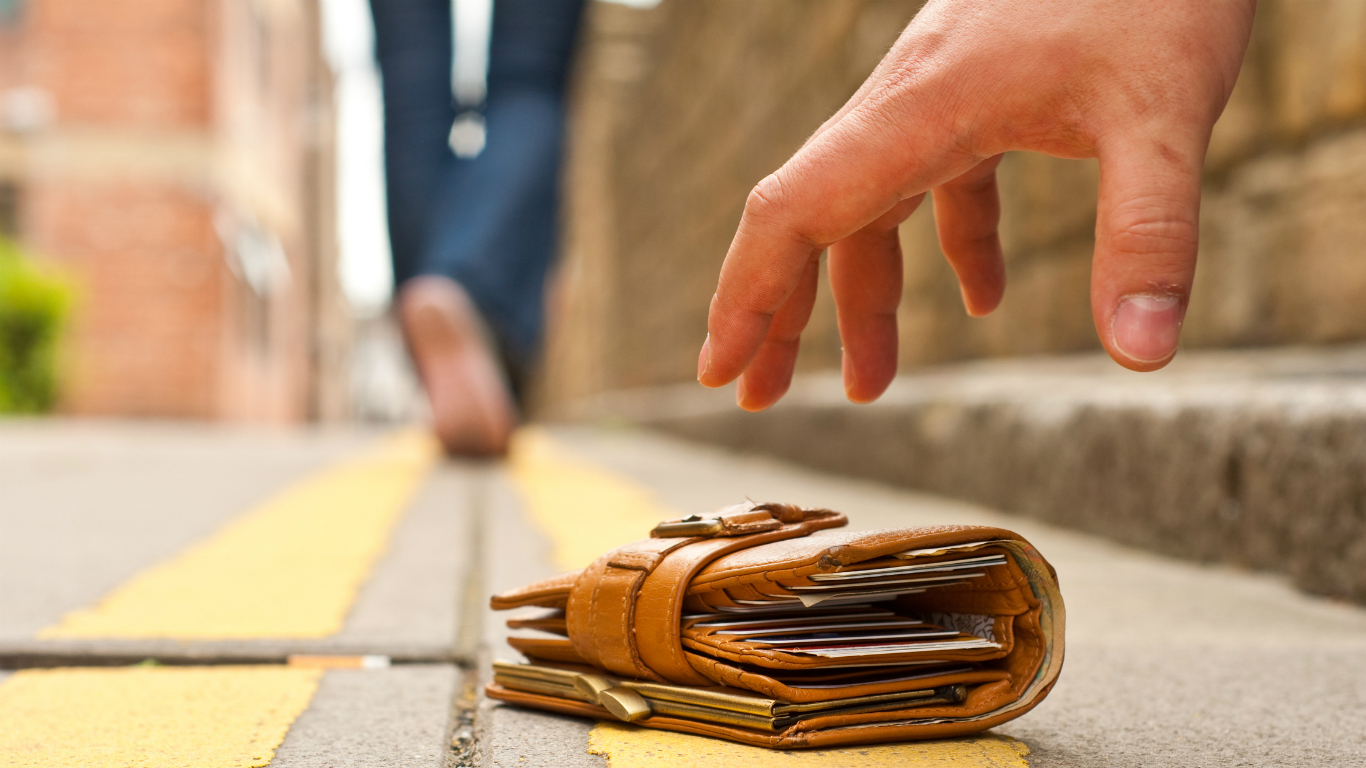That’s the surprising conclusion of a study called “Civic Honesty Around the Globe,” just published in the journal Science. Working in stages, teams of economists from the universities of Michigan, Utah, and Zurich tried an experiment over a three-year period in some 355 cities in 40 countries.
During the course of the study, they dropped off a total of 17,000 clear plastic wallets at either banks, hotels, post offices, police stations, or cultural institutions like museums and theaters. They claimed to have found the wallets on a nearby street and asked the institutions to take care of returning them to their owners. Each wallet contained evidence that the owner was local (a key, three business cards bearing a common local name, and a grocery list written in the local language), and either no money or — clearly visible through the plastic — the equivalent of $13.45.
Some 40% of the no-money “lost” wallets were reported, but of the ones containing money, 51% were. The researchers were so surprised by this result that in three of the countries studied — the U.S., the U.K., and Poland — they increased the amount of money included to the equivalent of $94.14. The rate of returned wallets jumped to 72% across the three. Of course, it’s worth noting that the first two rank among the 25 richest countries in the world.
The study ruled out several possible explanations for the higher reporting rate for wallets with money: someone else was present when the wallet was turned over; there were security cameras recording the transaction; or, in the U.S., the requirements of state lost-property laws. None of these factors was shown to have any influence.
Did recipients of the wallets expect higher finder’s fees if they returned them full of money? The researchers failed to find any indication that that was the case.
The experiments were conducted, write the authors of the study, to determine whether people act more dishonestly when there’s an economic incentive to do so, and they found that the opposite was true. Perhaps, they suggest, the psychological costs of viewing oneself as a thief outweigh potential financial gain.
